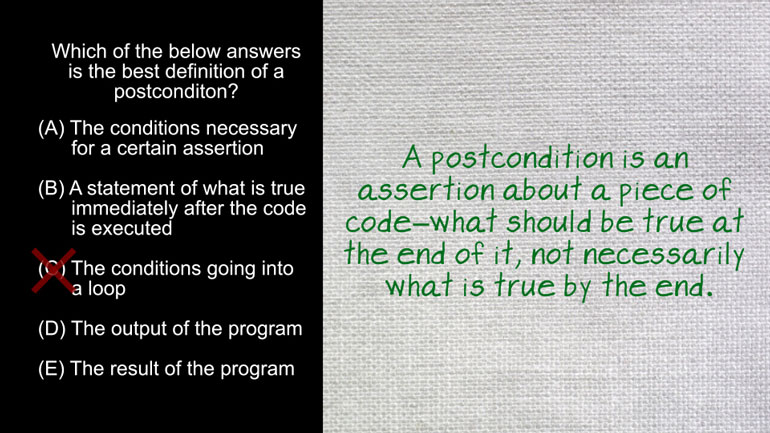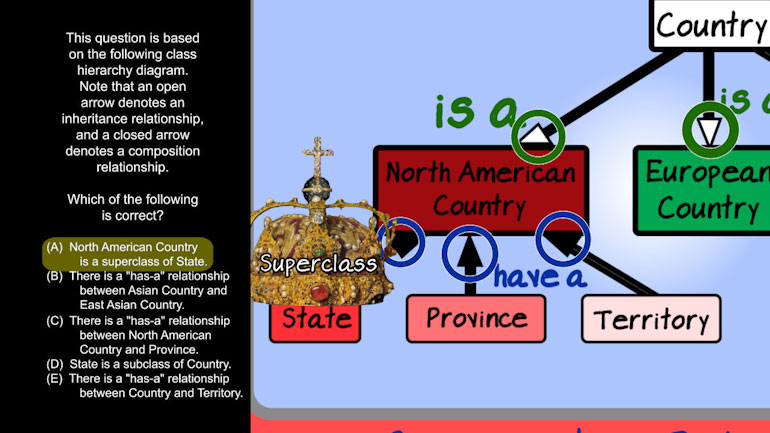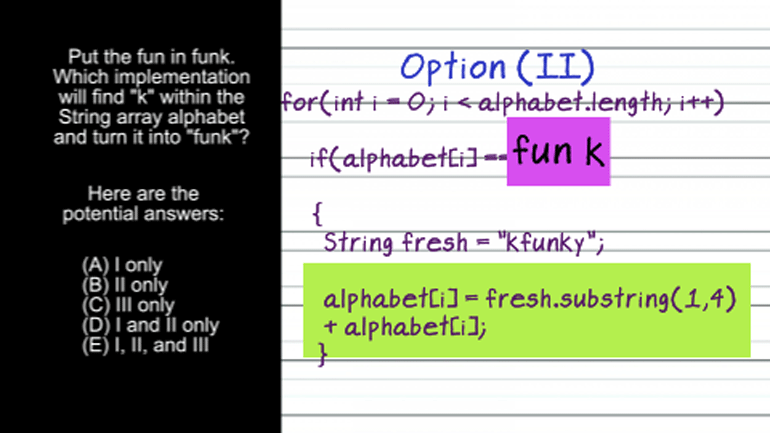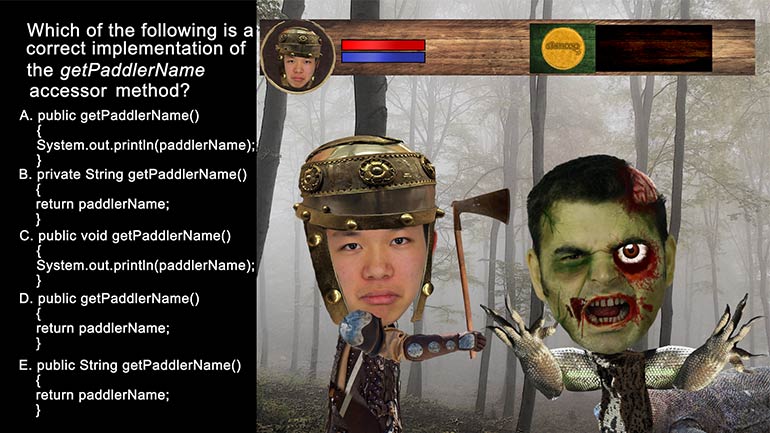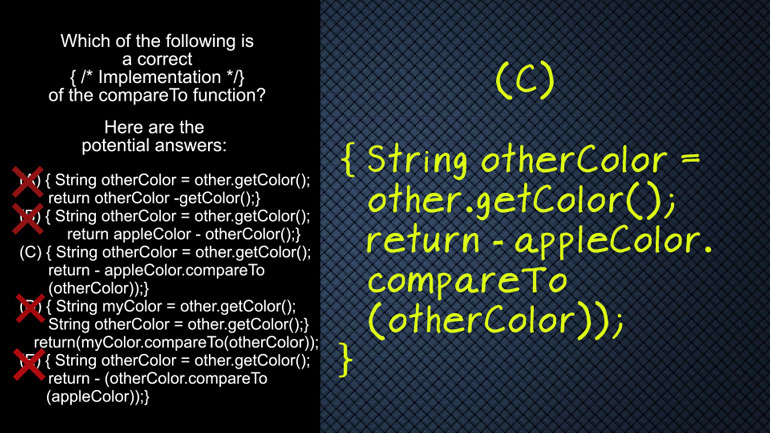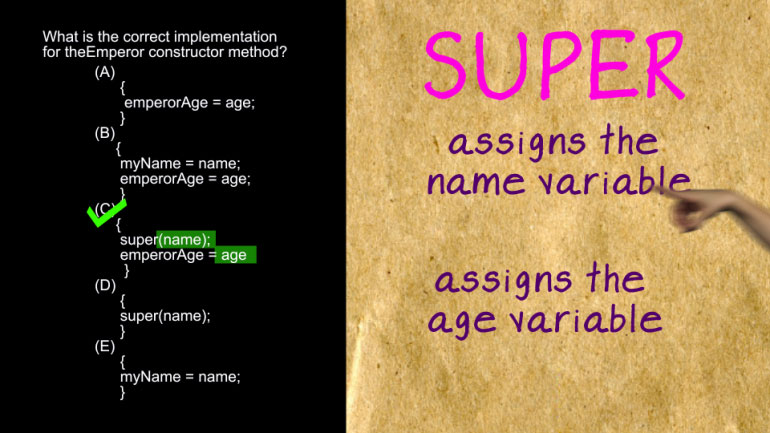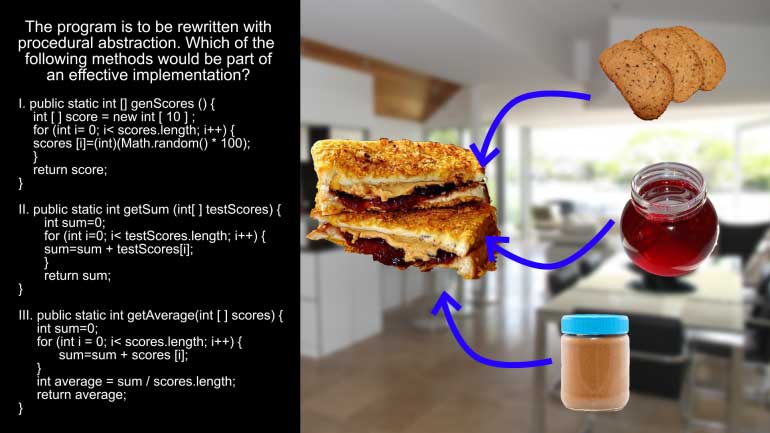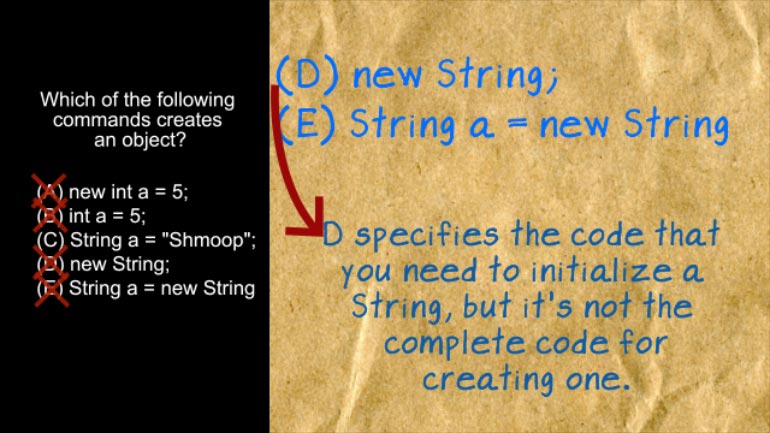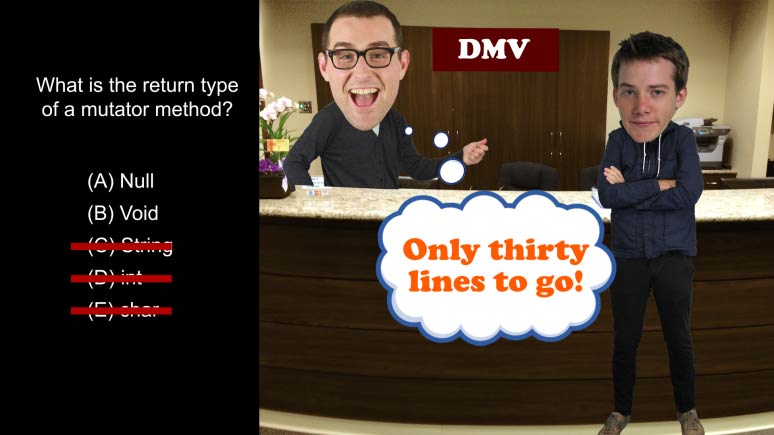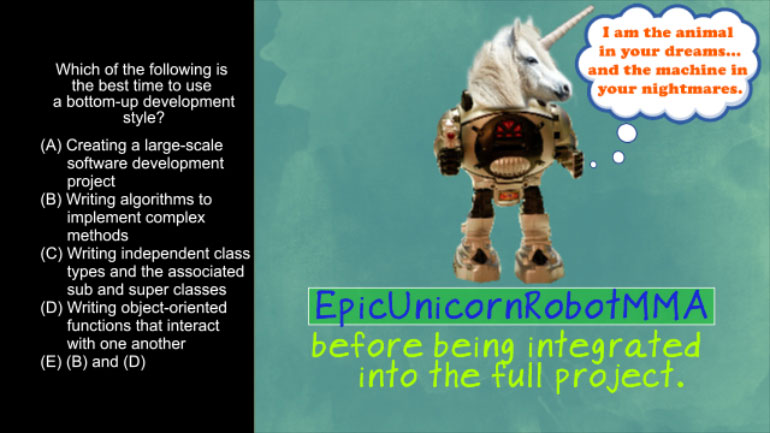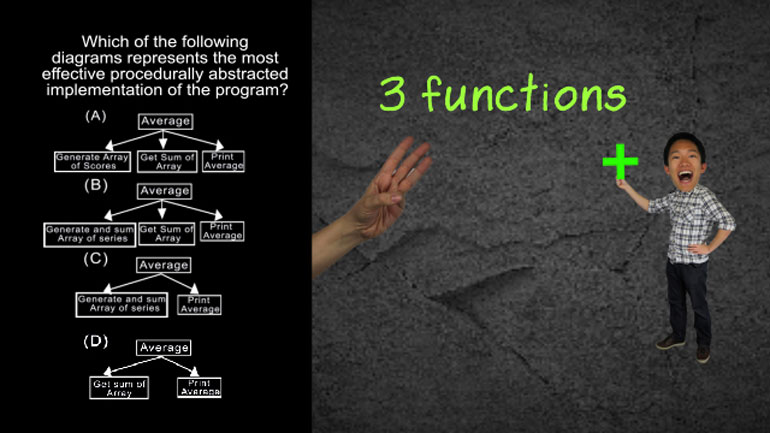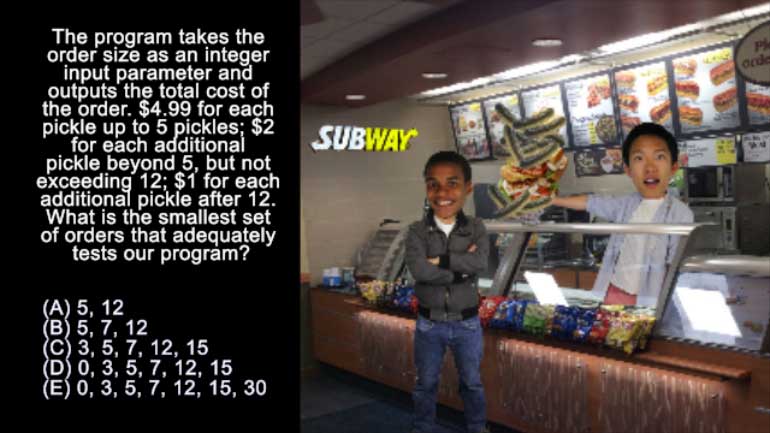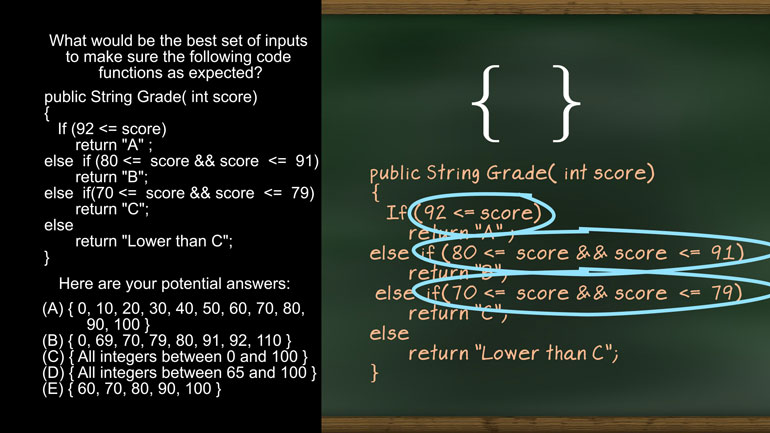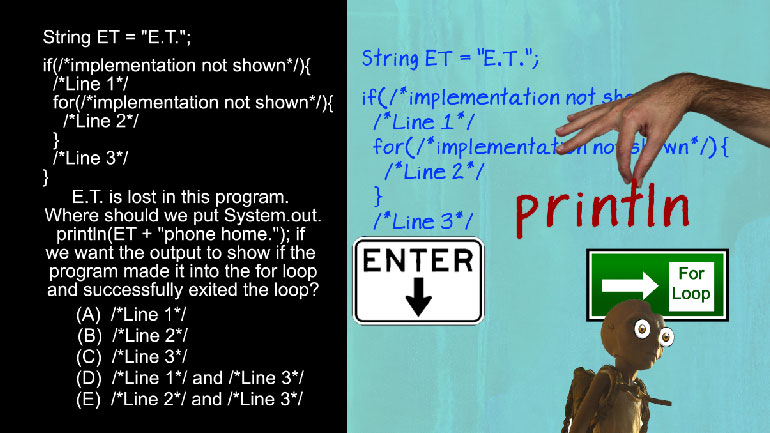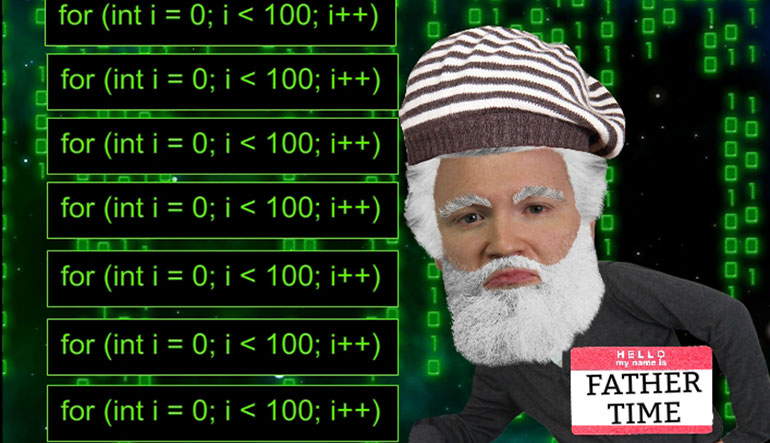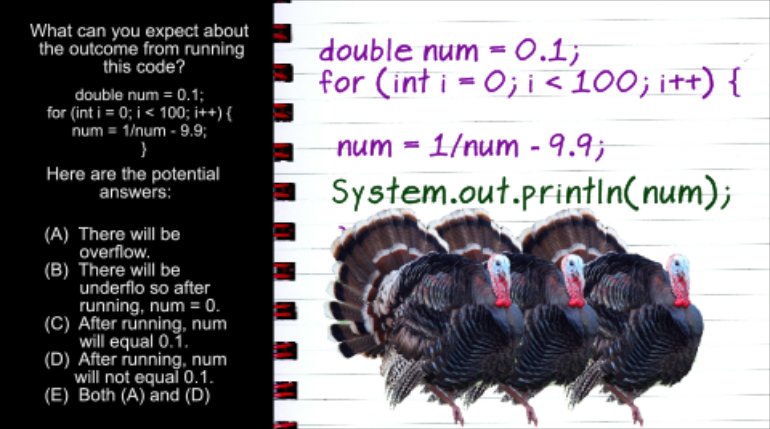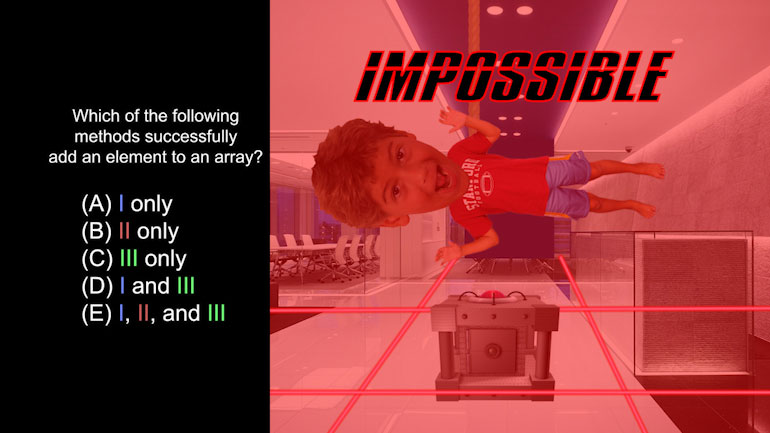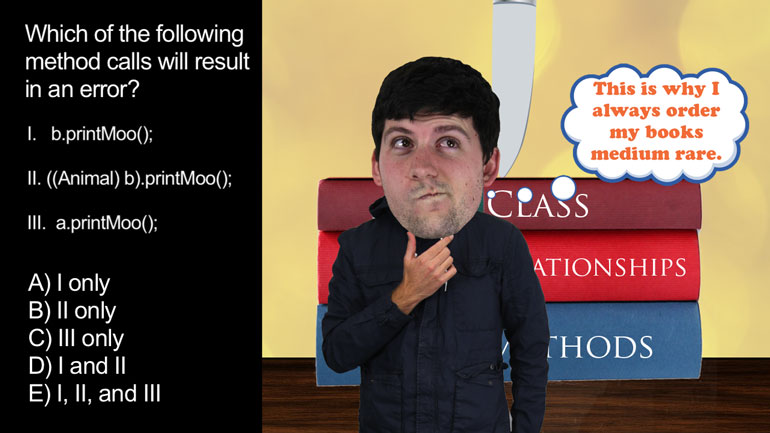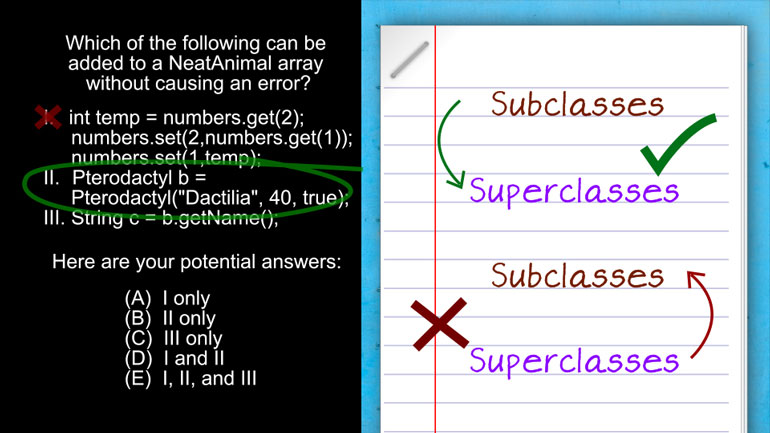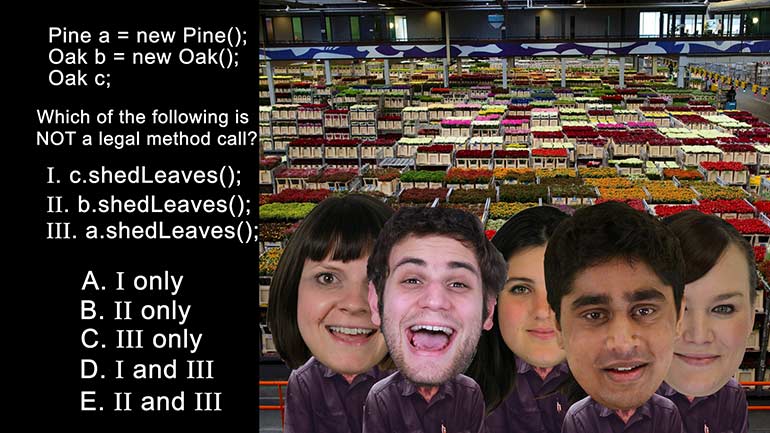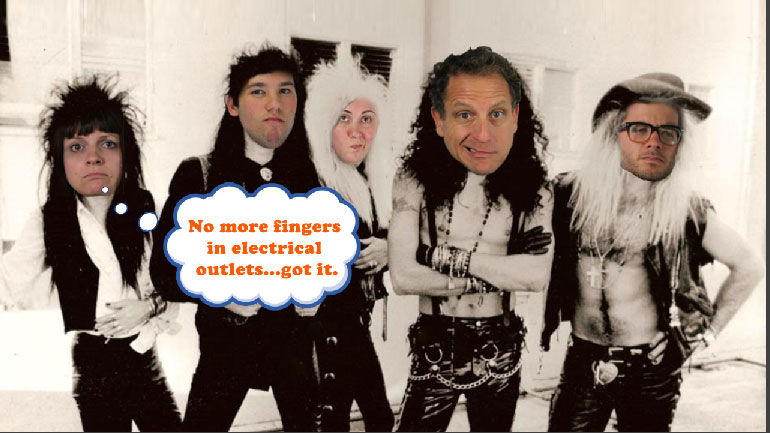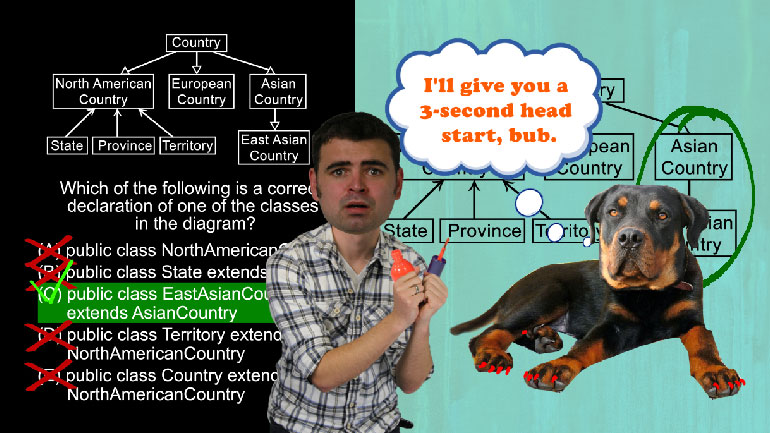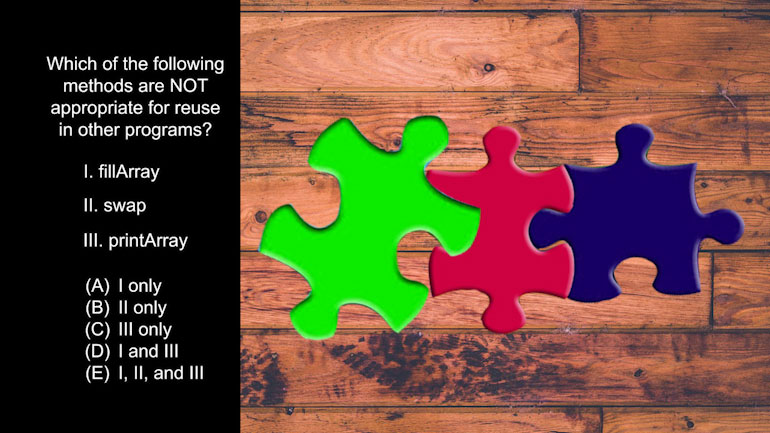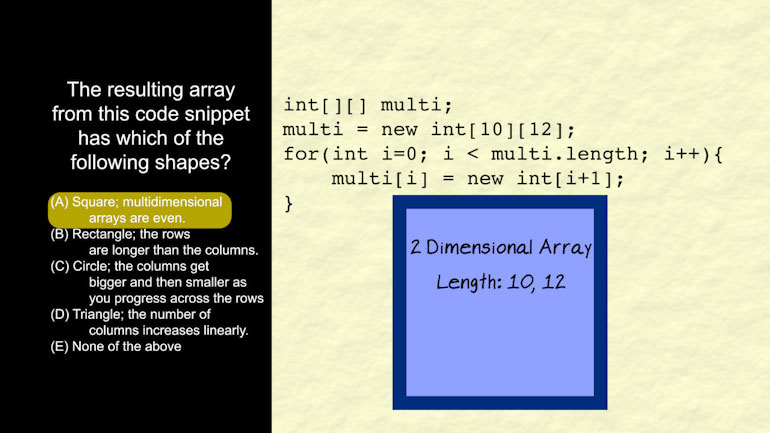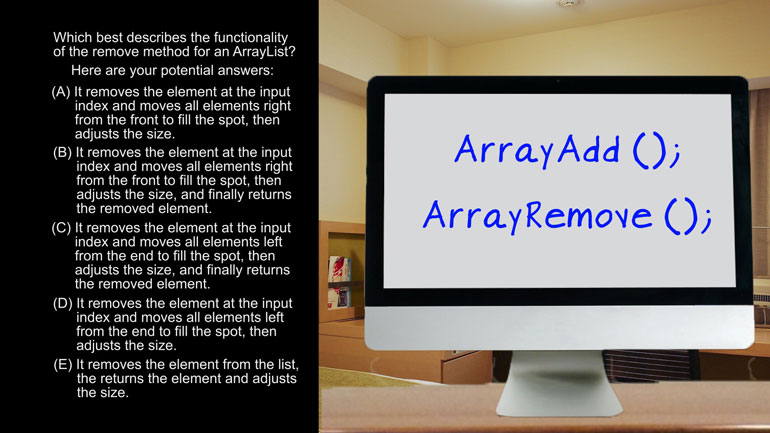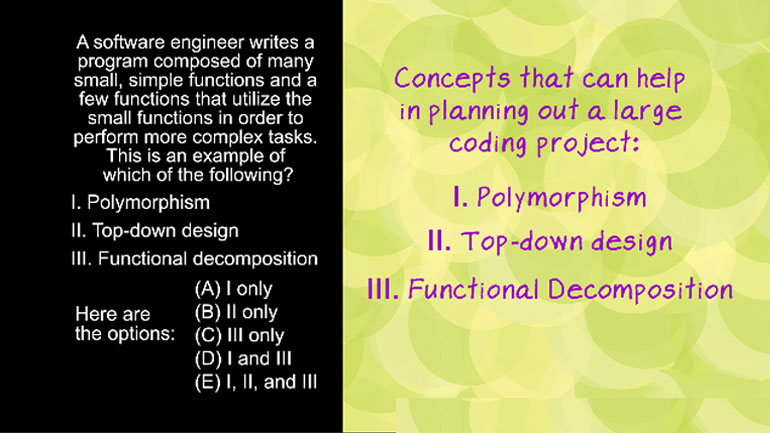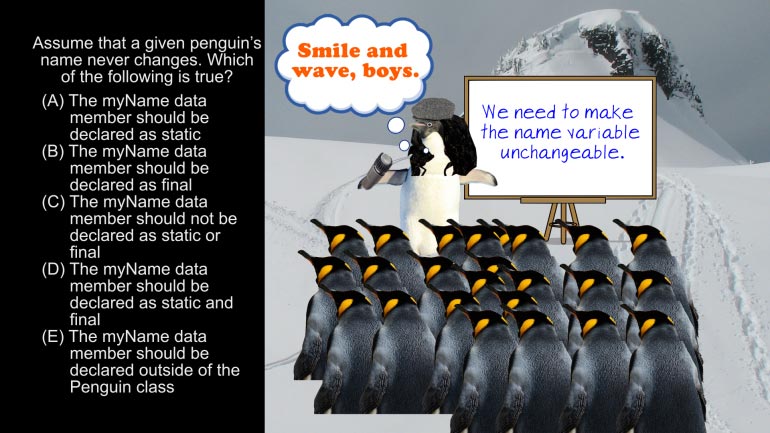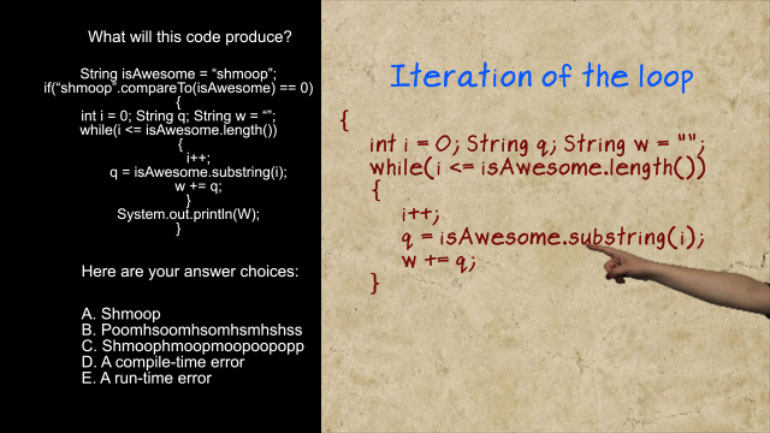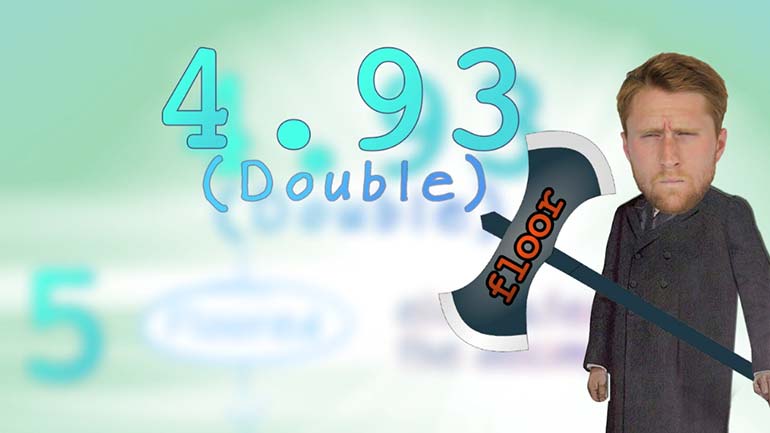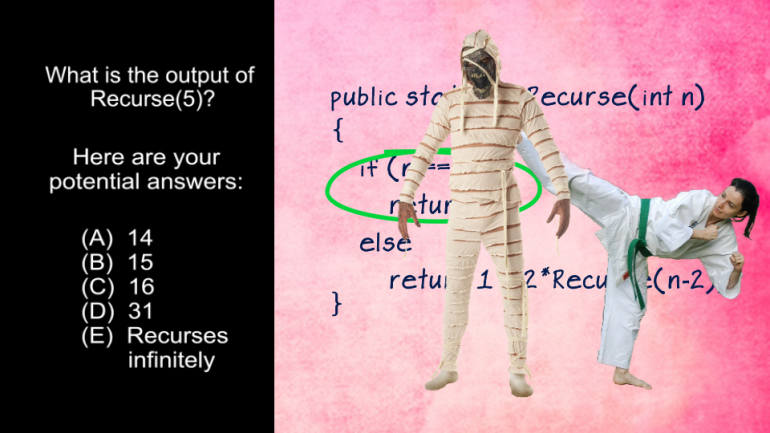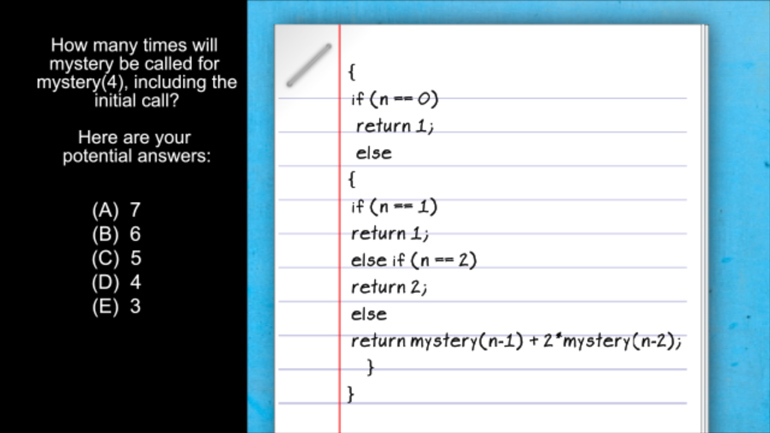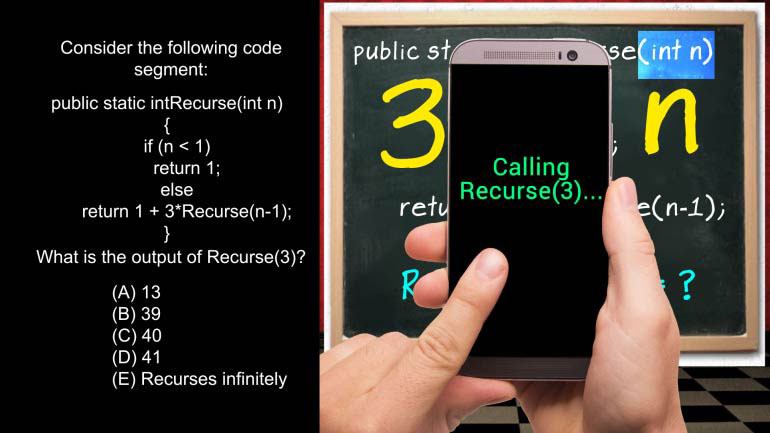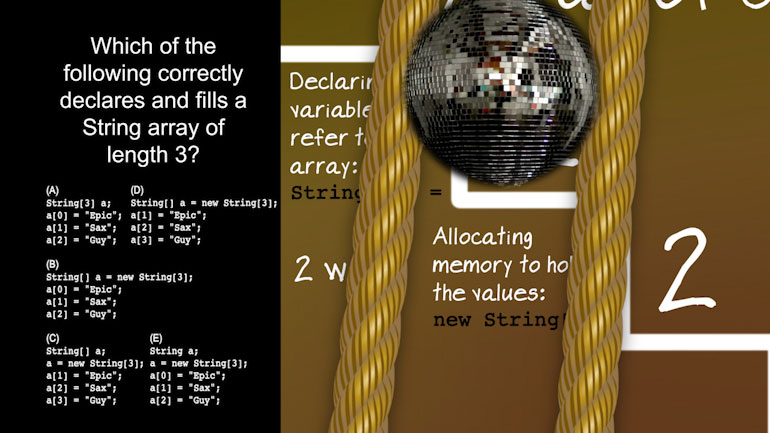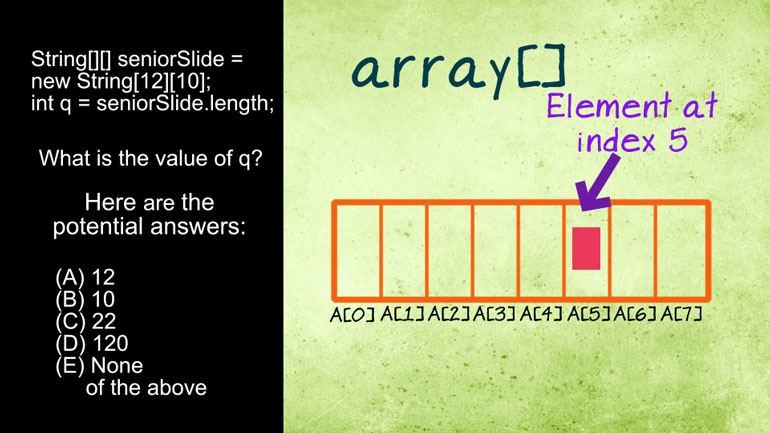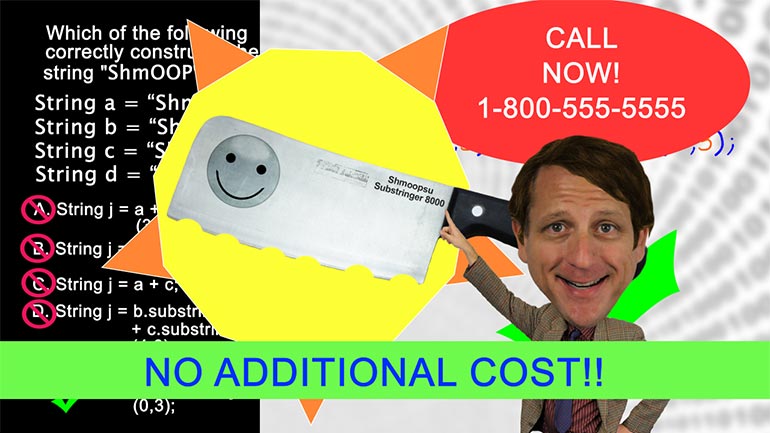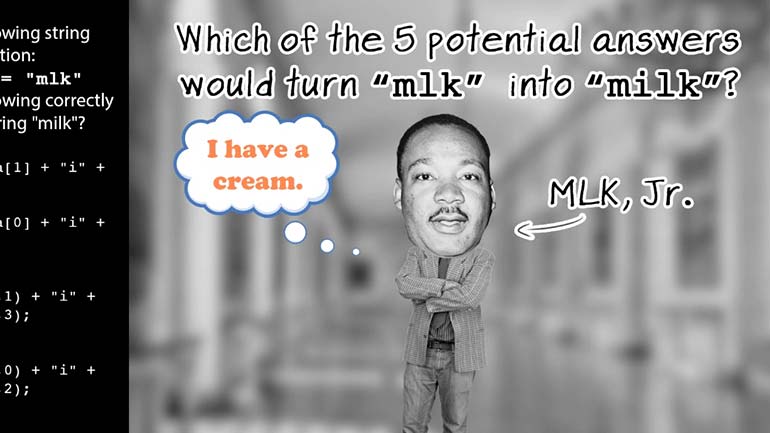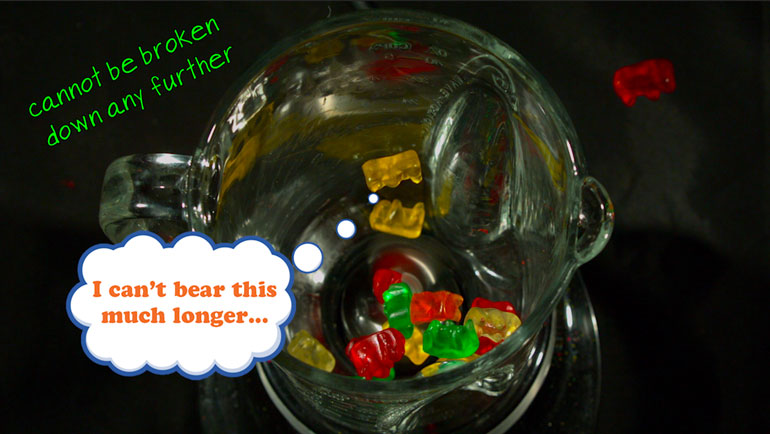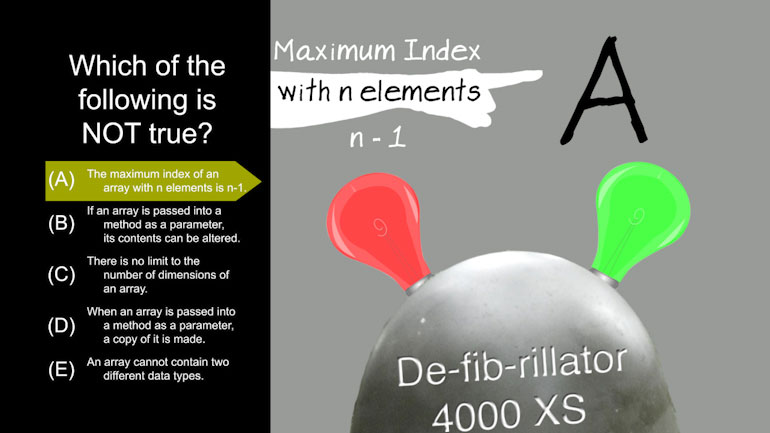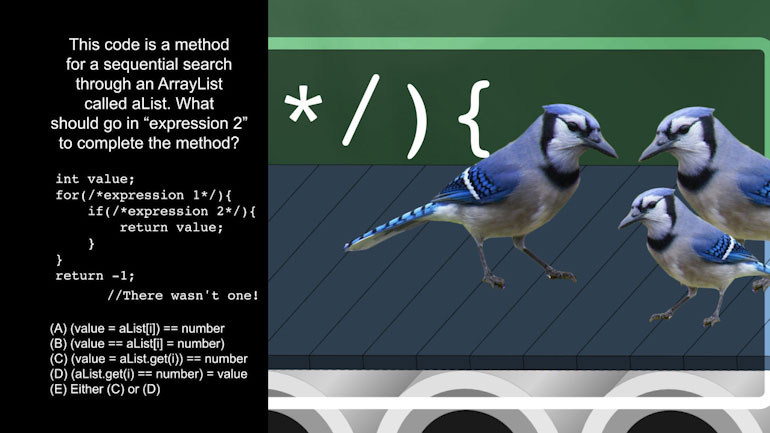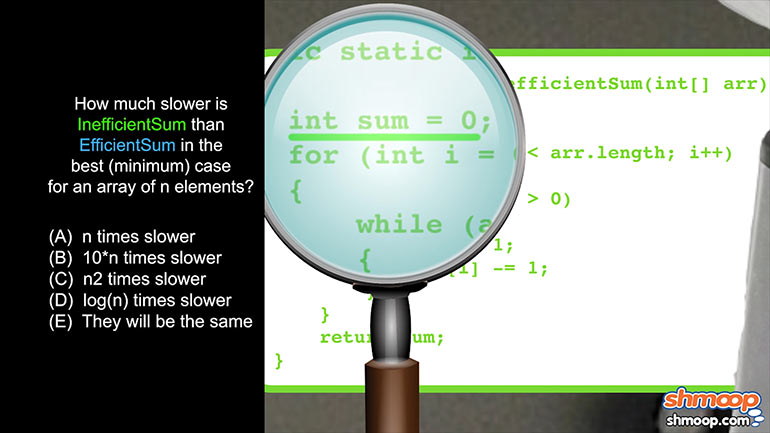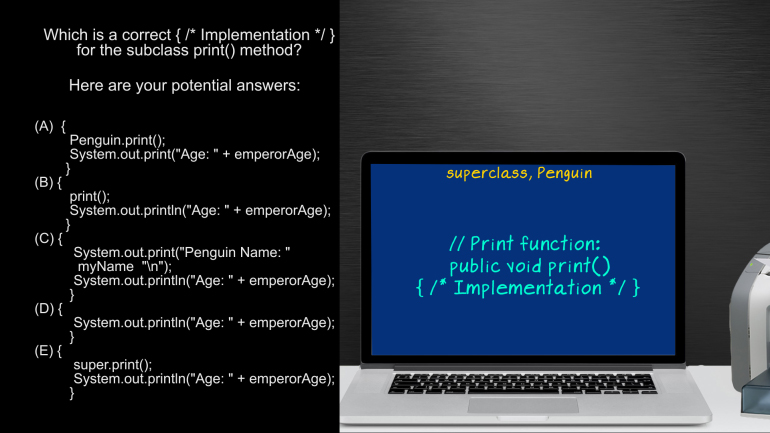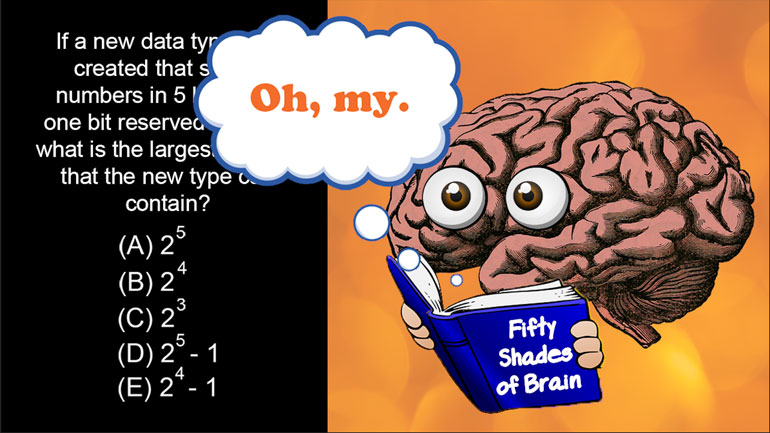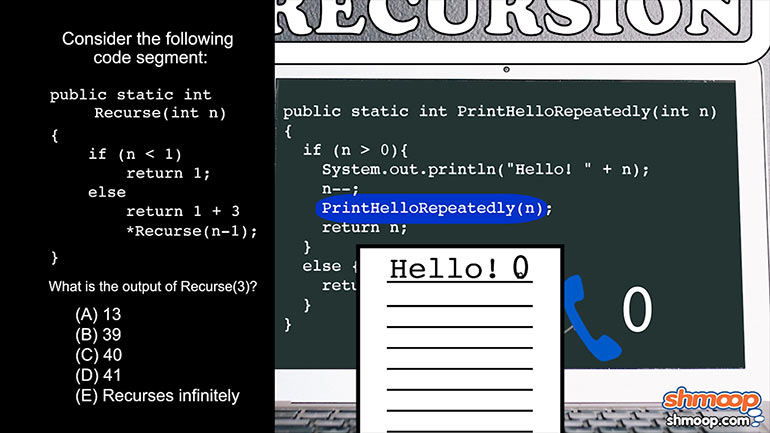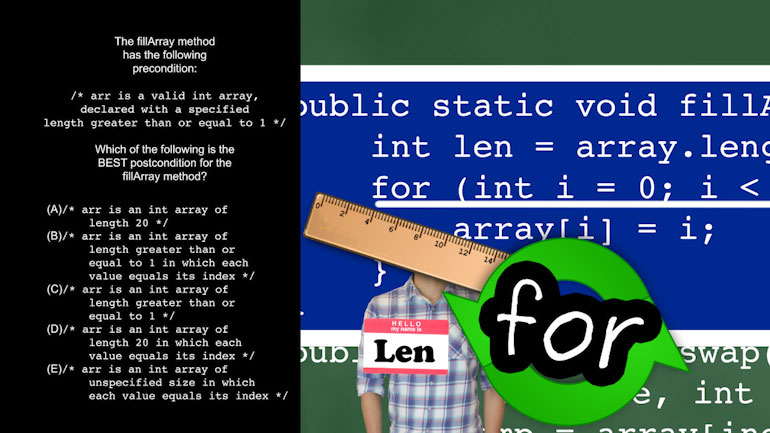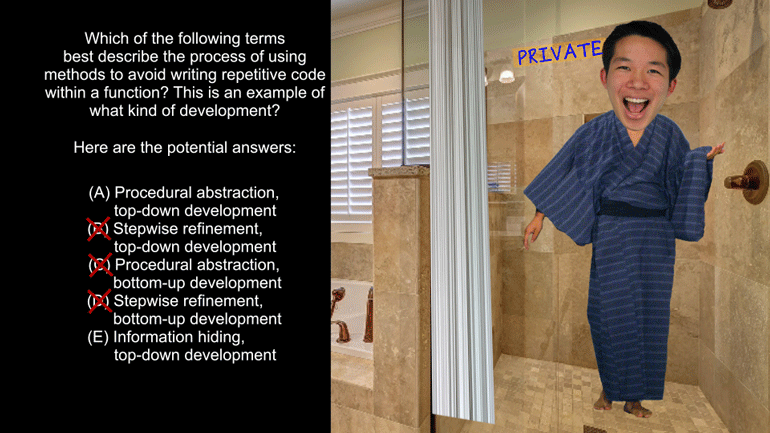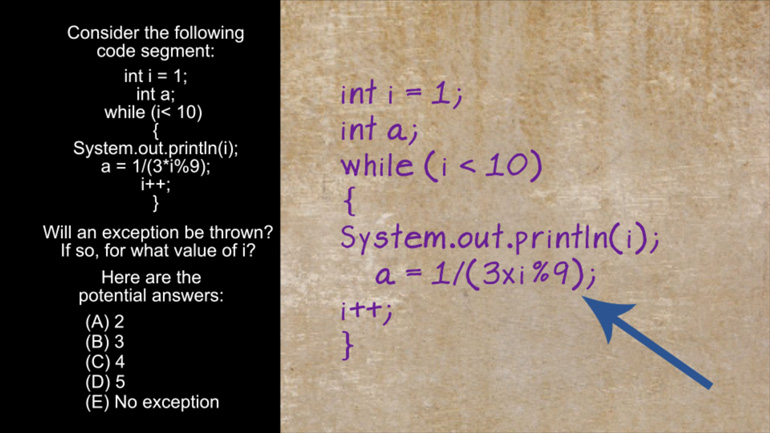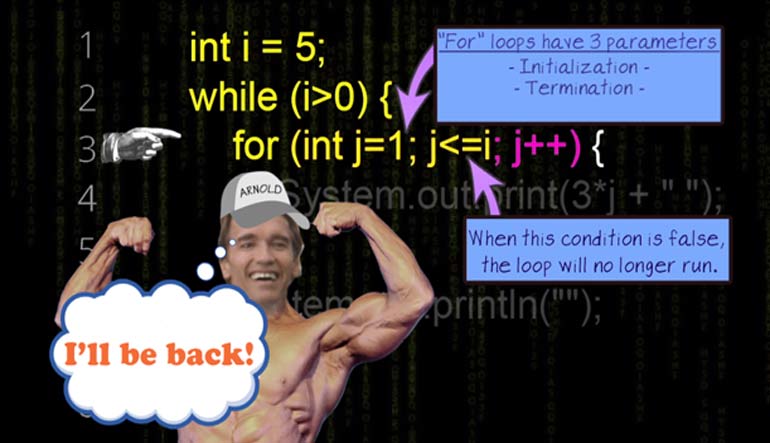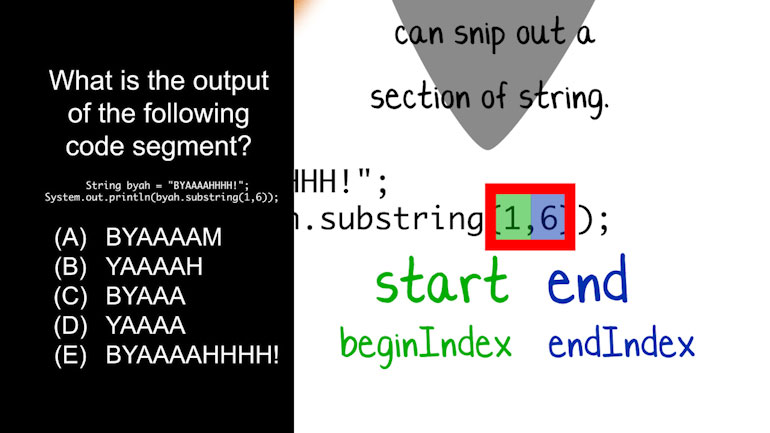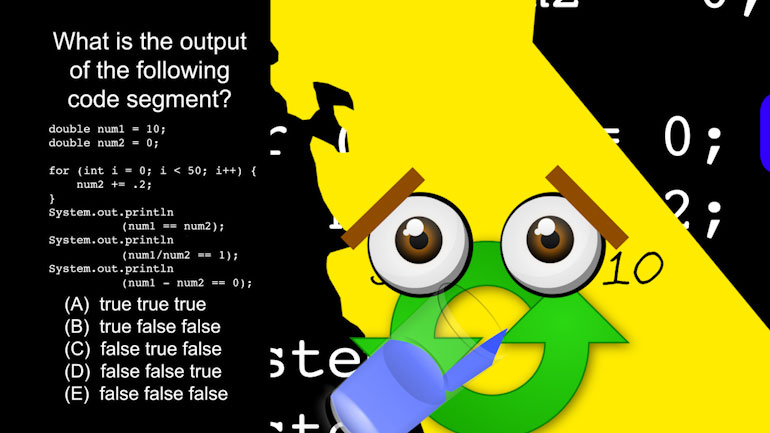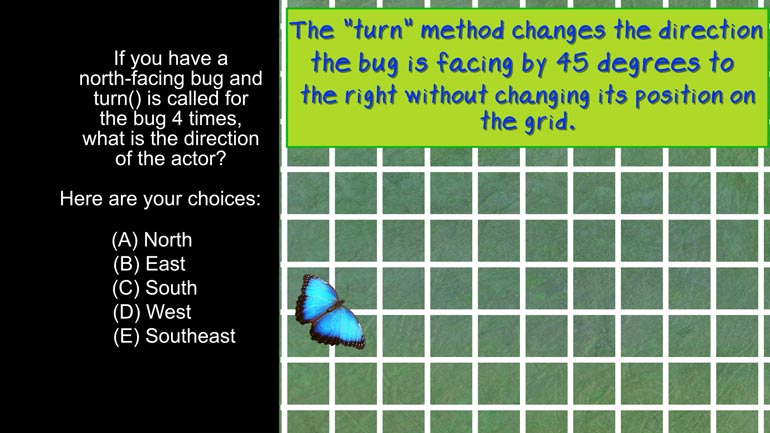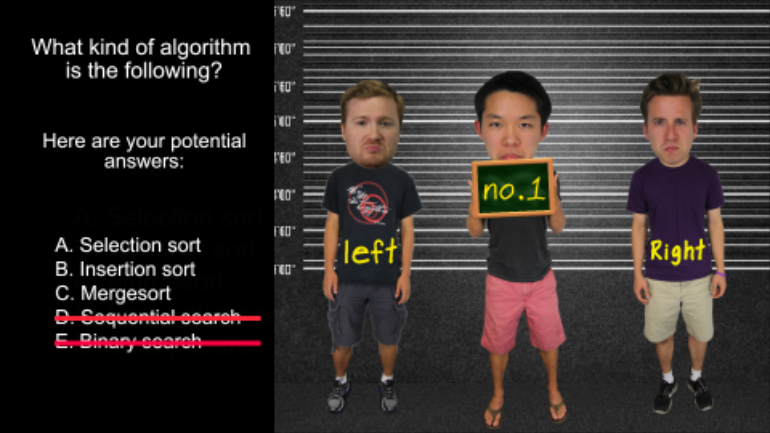ShmoopTube
Where Monty Python meets your 10th grade teacher.
Search Thousands of Shmoop Videos
AP Computer Science A Videos 108 videos
AP Computer Science: Classes and Objects Drill 3, Problem 5. Which of the following is not an object?
AP Computer Science: Classes and Objects Drill 3, Problem 4. Which of the following are objects?
AP Computer Science 4.1 Classes and Objects. Which of the answers is the best definition of a postcondition?
AP Computer Science 3.3 Review of the Basics 176 Views
Share It!
Description:
AP Computer Science 3.3 Review of the Basics. What is the largest number that this new data type can contain?
Transcript
- 00:00
Thank you We sneak And here's your smoke Do as
- 00:05
you are And what a dracula say After trying tow
- 00:09
fight into a dried up mummy bangs for nothing Okay
- 00:15
If the new data type was created that stored Numbers
- 00:17
in 5 bits with 1 bit reserved for sign What
Full Transcript
- 00:21
is the largest number that the new type can contain
- 00:26
And here your potential answers All right Good question Okay
- 00:31
here we go Well looks like our expertise What binary
- 00:34
will be necessary to solve this one Binary is after
- 00:37
all the blood and guts of how computers think But
- 00:39
it's also the things and the kate Wait That's not
- 00:42
finery That's directed different Okay let's Try this again Are
- 00:46
human brains can think in shades of gray and well
- 00:49
way more than just fifty of them Things can very
- 00:52
easily get partially correct or even ambiguous for us Should
- 00:56
you wear those shoes in public Maybe All right but
- 00:59
for computers things were more black and white Data is
- 01:01
stored in its simplest form as a one or a
- 01:03
zero combined several zeros and ones to represent more complex
- 01:07
data And you have one of the pillars of modern
- 01:10
computer science In a nutshell the most basic unit of
- 01:13
information is the bitch a single zero or one with
- 01:16
it We can represent values of well not much Zero
- 01:20
or want true or false date of these bad boys
- 01:23
love together though gives us of fight and we can
- 01:26
do way more with a bite So in fact since
- 01:29
each bit within a bite has a different value just
- 01:32
eight tiny bits can represent any number from zero to
- 01:35
one hundred fifty five All right but that's what eight
- 01:38
bits are capable of what about the hypothetical data type
- 01:42
in the question Five bits with one set aside for
- 01:46
signs Well that'll give us forbids to store a number
- 01:49
and if all four of those get lit up with
- 01:51
one of the greatest number we could possibly represent would
- 01:54
be yeah fifteen Well that sign would be used to
- 01:58
indicate whether or not the number is negative so are
- 02:01
complete range would be negative fifteen to positive fifteen on
- 02:05
our potential answers were given with exponents One of them
- 02:08
happens to equal fifteen so it's two to the force
- 02:12
which is sixteen minus one So ease our answer and
- 02:15
wow we didn't mind that problem one day let alone 00:02:18.273 --> [endTime] five
Related Videos
AP Computer Science 1.2 GridWorld Case Study and APIs. What is the direction of the actor?
AP Computer Science 1.4 Standard Algorithms. How many times will mystery be called for mystery(n) for n > 1?
AP Computer Science 2.3 Classes and Objects. Which of the following is correct implementation of the Country class?
AP Computer Science 3.4 Inheritance, Abstraction, and Polymorphism. Which of the following will satisfy the conditional if statement for boo, str,...
AP Computer Science 4.2 Standard Algorithms. What kind of algorithm is the following?


